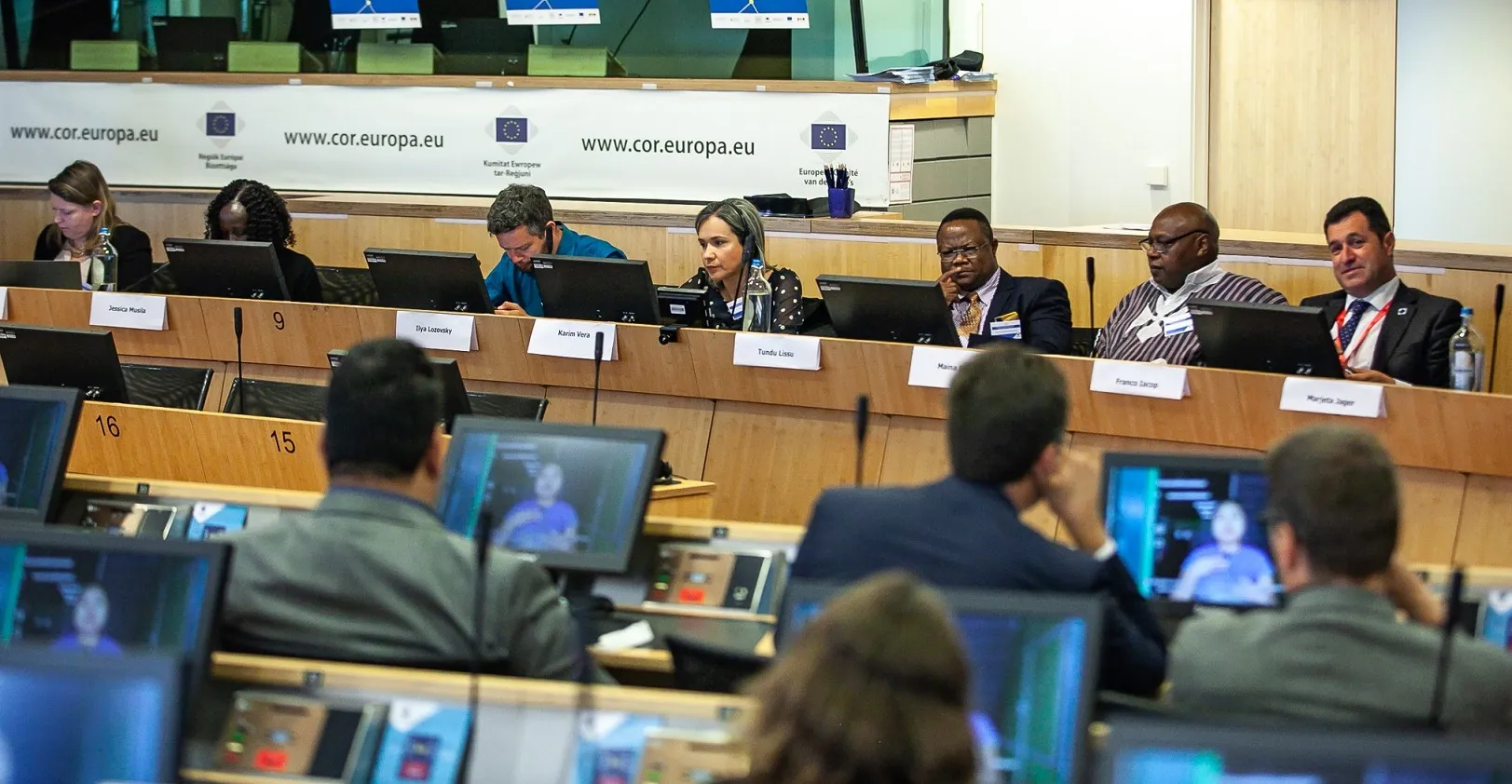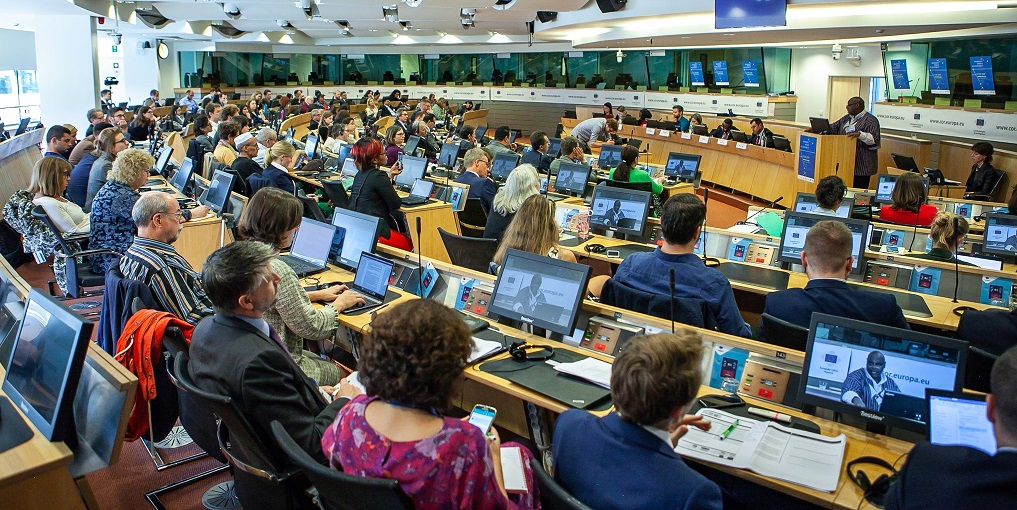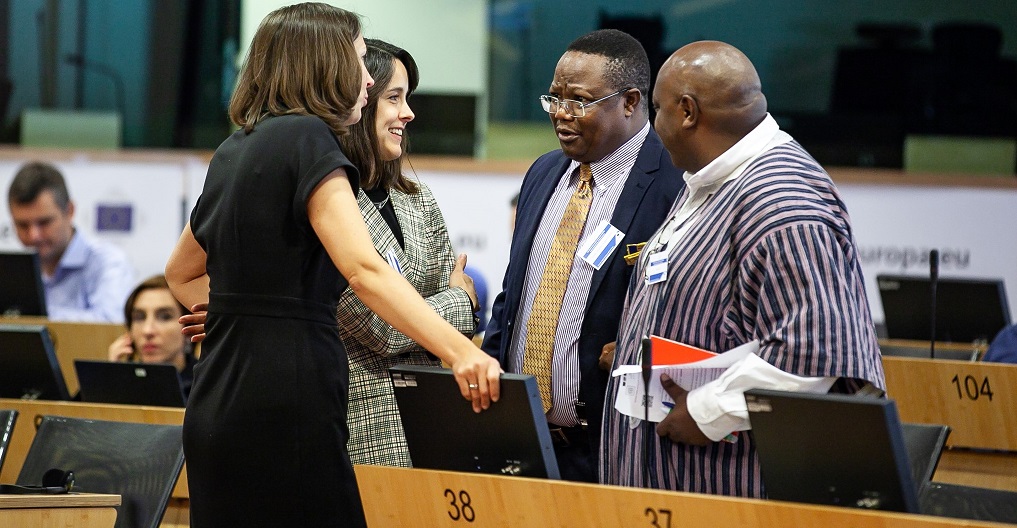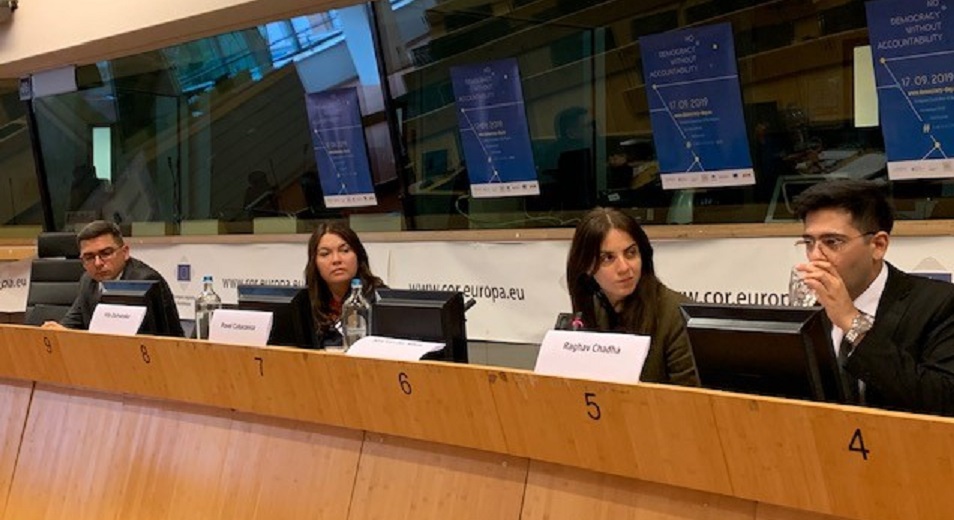No Democracy Without Accountability: Celebration of the International Day of Democracy 2019

International IDEA’s Regional Europe Programme celebrated the International Day of Democracy (15 September) by co-organizing a high-level conference on ‘No Democracy without Accountability’, at the European Committee of the Regions in Brussels on 17 September 2019. The Organizing partners were the European Endowment for Democracy, European Partnership for Democracy and European Network of Political Foundations, with the support of the European Committee of the Regions and the European Instrument for Democracy and Human Rights (EIDHR)-funded ‘Supporting Democracy’ programme.
Participants included democracy support practitioners, EU and national policymakers, diplomats, civil society organizations, international organizations, academics and interested citizens.
Why accountability is important for democracy
Opening remarks were delivered by Marjeta Jager, the Deputy Director General for International Cooperation and Development, European Commission, and Franco Iacop, Member of the Committee of the Regions and CIVEX Coordinator. They emphasised the central role of responsibility for democracy and for future development cooperation efforts. Keynote speaker, Maina Kiai, Former UN Special Rapporteur on the Rights to Freedom of Peaceful Assembly and Association made a passionate plea to stop calling countries “democratic” based solely on regular elections, instead urging us to judge democracies by how well they serve the weakest and poorest members of society.
The opening panel discussion addressed broadly the importance and moving parts of holding elected representatives accountable, presenting insights from Kenya, Tanzania and Venezuela, and international human rights efforts. Afternoon sessions addressed the importance of civic courage in countering corruption, the accountability of social media platforms and digital political advertising, civil societal responses to and strategies in the context of shrinking spaces, and the use of information communications technologies for transparency and accountability in political finance. Key take-aways from the event included the importance of donor agencies holding their partners accountable to international commitments to human rights and democracy, and the value in harnessing modern technologies to ensure better transparency and improved communications with the public through visual, regularly-updated, and user-friendly data.

How transparency can contribute to accountability in political financing
International IDEA hosted a panel on ‘Using ICTs for transparency and accountability in political finance’, which gathered insights from Pavel Cabacenco, Head of the Centre for Continuous Electoral Training, Moldova; Vita Dumanska, representative of the Ukrainian CSO Chesno/Gold of Parties, and Raghav Chadha, National Spokesperson of the Aam Aadmi Party, India. Panellists presented innovative new technologies used to give the public greater access to information on how much money circulates in electoral campaigns, where resources are coming from, and how they are spent. Notable was that each panellist presented a different vision of how ICTs can be established to enhance transparency: from Moldova, through a government-led mandatory online reporting system, from Ukraine, a CSO-led platform enabling citizens to interact with unique datasets, and from India, a political party-led application listing all donations received through the work of volunteers and support of microfinancing from average citizens. Other possibilities are discussed in International IDEA’s publication, ‘Digital Solutions for Political Finance Reporting and Disclosure: A Practical Guide’.


The session highlighted the following key points: to counter the influence of large donors on democratic politics, political parties should reach out and engage the citizenry not only in consulting on party positions and programmes, but also in stepping up efforts to mobilize small, even if minimal, donations from citizens. Based on the example of the Aam Aadmi Party, this fundraising can result in more meaningful citizen participation in political parties that they would like to support. International IDEA discusses different ways for political parties to crowdfund, and their respective benefits and drawbacks, in its publication ‘Political Party Innovation Primer on Online Political Funding’.
The ability of the public and CSOs to scrutinize and analyse electoral campaign donations and expenditures has multiple positive effects, particularly for public knowledge and transparency on who funds whom. Equally important, it also generates critical analytical knowledge about the functioning of electoral process: Chesno’s disclosure and reporting on campaign finances revealed that approx. 80-90 per cent of campaign expenditures by parties are spent on television advertisements. Last but not least, Moldova’s ongoing effort to build an online reporting system for political parties showcases the benefits that the system can bring to the overall political and campaign finance oversight system. When operational, the system will detect and control for arithmetical errors and ensure dynamic connection to other state databases to check the information across other data sets such as taxation, declared assets, etc, freeing up much needed human resources to focus on more strategic functions such as verifying data and follow up on necessary investigations.




